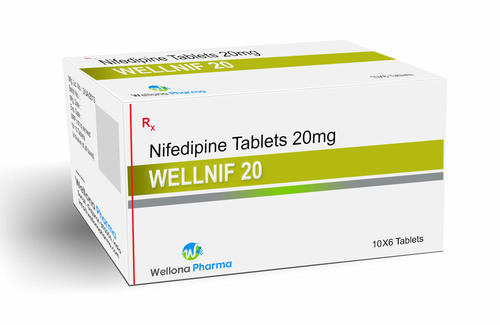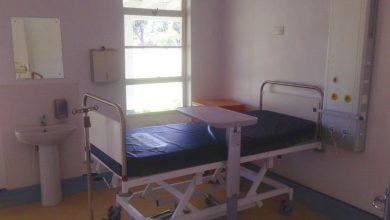
By Zibusiso Gama
The effects of Covid-19 regulations have compelled chronic disease patients to devise new medication timetables that are causing them to default in taking their medication on time, it has been established.
This is more pronounced in Gwanda South where several people with chronic illnesses depended on medical supplies from neighbouring South Africa.
However, due to the current lockdown regulations on either side of the border which have seen only borders opening for freight, patients have been left in limbo.
Common amongst the chronic disease are Hypertension (commonly known as blood pressure), Diabetes and Asthma.
A visit to Garanyemba, 40 km’s south of Gwanda urban revealed a grim picture for the elderly who are living with chronic diseases.
68-year-old Gogo Connie Dube from Garanyemba, a hypertension patient said she had all along been receiving her medical supplies from her children who work in South Africa but last got her supplies in April and would last her until the end of July.
“The closing of the South African border will lead us to our graves. I cannot afford my high blood pressure medication locally because they are sold in United States dollars which I do not have at private outlets.
“Before the outbreak of coronavirus my children in S.A would buy and send me the medication. Now that they are no longer allowed to come or send me some groceries, I have resorted to skip a day in between in order to save the little I have.”
She added that she started taking her medication more than 10 years ago and last received government free medication 8 years in 2012.
“I am on a medication called Nifedipine which is not always available at Gwanda provincial hospital which is our referral centre. I visited the hospital recently with the intention to stock before my supplies ran out but I was told there was no Nifedipine in stock,” she said.
A diabetic patient also from Garanyemba said he now has very little supplies that he bought in South Africa and fears he could face problems to re-stock.
“I have always bought my medication from South Africa where it is cheaper and always accessible. I’m under medication for diabetes called Ozempic semaglutide which is an injection shot that I get once a week. My last shot will be the last weekend of August and with the current lockdown I do not know what I will do,” he said while adding that several other villagers in the area were under the same predicament.
At Ntepe, 10 kilometres South of Garanyemba, the situation was not different for 82-year-old Gogo Nthabiseng Tladi who has since stopped taking hypertension medication due to its unavailability at clinics and Gwanda provincial hospital.
“I have relied on my medical supply from Gwanda hospital for quite some time now as I got it for free, it was not difficult to get and I always sent one of my grandchildren with my prescription to collect for me.
“Since April my grandchildren have gone there more than 4 times and each time we are told that my drugs called Atenolol are not available. I haven’t taken any medication since the end of April and I cannot do anything about it.
“I have sought help from local nurses who have told me that the only way I can maintain my fitness is by avoiding foods with a lot of salts and oils and that I should also not overwork,” she said.
While the rural populace with chronic illness has been severely affected, it is also not rosy in Gwanda Urban for those who live with HIV.
A Gwanda hospital senior medical staff worker who spoke on condition of anonymity as he is not allowed to speak to the media revealed that statistics show a lot of defaulting patients in the small mining town since the lockdown began.
“A lot of people in Gwanda town are defaulting yet Anti-retroviral drugs are abundantly available.
In Gwanda urban we have two collection centres – in town at the provincial hospital and in the high-density suburbs at Phakama Clinic.
“Though more than 90 percent of those who are on ART live in high-density areas, they prefer to take their medicines from town because Phakama is within their vicinity and they fear stigmatisation if noticed collecting the drugs.
“Now with the coming of the coronavirus which has restricted movement where people are being randomly asked what they are doing in the CBD, several on ART have stopped coming to town as they are not at liberty to disclose their statuses or hand the police their medical cards, it is a serious issue which should not be underestimated,” revealed the source.
Contacted for comment, Acting Gwanda Provincial Hospital Medical Superintendent, Dr Blessed Gwarimbo who is also the acting District Medical Officer conceded that Gwanda provincial hospital like any other government health institution was facing drug shortages for those with chronic conditions which have been precipitated by the novel coronavirus.
“Yes, there isn’t medicine at the hospital to cater to the chronically ill patients. This has been made worse by the outbreak of the coronavirus which has rendered government development partners unable to ship drugs that would either have been given for free for those over 60 years or at subsidised prices for those younger.
“You should note that this is not only peculiar to Zimbabwe but most parts of the continent as we get several of such medicines from Europe and Asia,” he said.
He urged those with chronic ailments and are out of medication to get to Gwanda Provincial hospital and see a doctor in order to have alternative medicine prescribed as defaulting would be fatal.
“For defaulting patients with chronic illnesses, it is medically wrong. Once you have been diagnosed with a chronic disease that calls for a lifetime medication it has to be followed unless otherwise. Such medication can only be stopped by a doctor if he/she is attending to something but the medication is for life.
“Those who default will be compromising their immune systems to that prescribed medication and might lead to mild strokes, so we advise them to come to the hospital where we will look at each case as it comes,” said Dr Gwarimbo.
Zimbabwe Medical Association Secretary-General Dr Pugie Chimberengwa acknowledged that the lockdown has had negative consequences to patients living with chronic illnesses.
“The consequences are both direct and indirect. It is the elderly who are more likely to have comorbid conditions such as hypertension and diabetes. This class of clients need to be compliant with their medication.
“There is a documented shortage of medications in pharmacies due to the lockdown, where medicines are available the cost has gone up due to shortages. This calls for a concerted effort by the key stakeholders in the health sector to explore alternatives to improve the logistical supply chain of medicines on both the public and private sector, this will ensure continuity of care during the Covid-19 era and beyond,” said Dr Chimberengwa
According to the Ministry of Health, Zimbabwe currently imports 70 to 90 percent of its drugs as suspension of operations by local suppliers of most critical medicine has turned the country’s critical drug shortage into a full health crisis, threatening millions of Zimbabweans who are reeling from the effects of the coronavirus.






